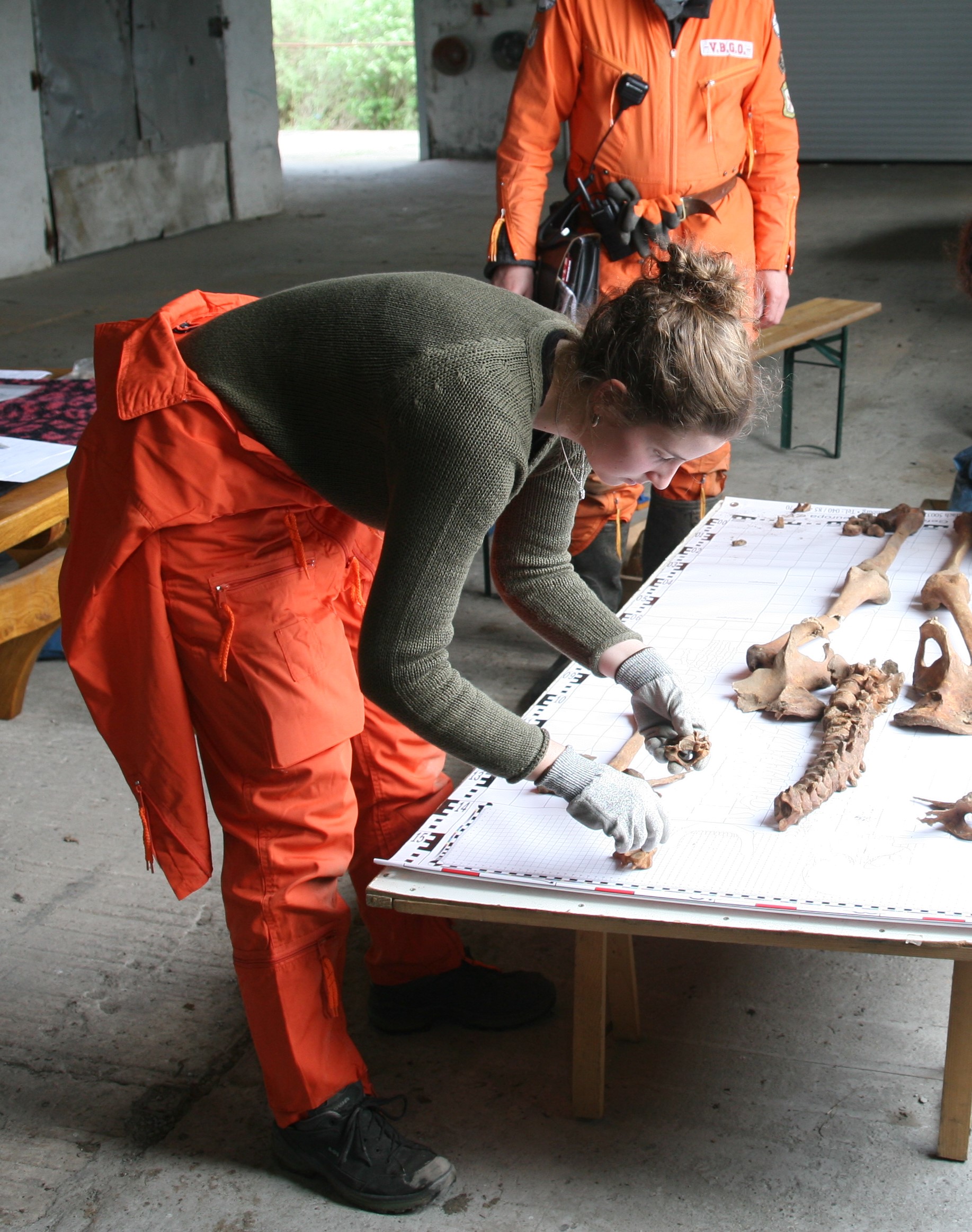From Christmas Carp to Forensic Anthropology
14/02/2020

I don’t really remember when I decided that I want to work with dead things. But I know it was a long time ago and I remember myself as a child, performing postmortem autopsies on the Christmas carp and being intrigued by its air bladder. I also remember studying the dead animals our cat Gipsy brought home – I placed them somewhere and went to see them every day. I was fascinated by how fast the insects could remove everything and only leave behind the bones. I thought – and if I am honest, I still think – what I did was weird. But now I know that watching bodies decomposing is a real discipline in forensic science, that it’s called forensic taphonomy, and that you can get information out of it that actually helps to solve crimes or identify deceased persons.
After years of really wanting it, last year I finally started to really experience forensic anthropology. I got internships in forensic pathology institutes where I assisted in forensic anthropology casework. I went to the field with forensic pathologists, worked on disaster victim identification of migrants that died in a shipwreck and I witnessed dozens of forensic autopsies. This was next to my so-called holidays where I went to recoveries of fallen soldiers from WW II in Germany and excavations of Iron Age settlements in Israel. And yes, my loved ones need to be (and luckily are) splendidly understanding.
Now here I am at Cranfield University, getting taught by experts. Not just experts, but the people that wrote the books piled on my shelf, the ones that really undertook the studies we get taught. Cranfield University has trumped my expectations because the courses are amazingly interesting and packed with information. And because it made me change my plan I have had for years – because I found new opportunities. Not at all being a nerd, I even enjoy the coursework because it is not just some stuff we do to get our grades, it is actual training and preparation for what comes after when we get released into the exciting world of forensic science.
The Forensic Programme is full of scientists that appreciate my willingness to learn and my commitment to the subject. Also, there are opportunities to do extra work to get more experience, to learn and to develop my skills. So I spend my days off at the Uni sitting in the bone lab for hours, studying fragments of bone. Again, not being a nerd at all.
My favorite module so far was Environmental Forensic Science (who would have thought), where we learned about the important things: insects, mud and scavenging animals. It was as if the lecturers had read my mind and made forensic disciplines out of my growing-up-time and it was utterly amazing to learn that I can do what I like to do and at the same time do something useful – what I, coincidentally, also like to do.
I immediately was very fond of one subject, animal scavenging, and am now in the initial stage of my research project in this field. It combines a scientific and systematic approach, results that can be used in legal cases, being out in the field and do some hands-on work. And who would have known that you can even apply statistics to foxes eating a pig?
The more I know about forensic anthropology and its related fields, the more I see that it is a rather new and small (but fast growing) area, and that there is still so much research to do. Sometimes I spend ages looking for a reference until it dawns on me that there is nothing published yet. And I am really excited and glad that I am now one of the people that fill up these gaps, too, slowly but constantly.
Categories & Tags:
Leave a comment on this post:
You might also like…
Keren Tuv: My Cranfield experience studying Renewable Energy
Hello, my name is Keren, I am from London, UK, and I am studying Renewable Energy MSc. My journey to discovering Cranfield University began when I first decided to return to academia to pursue ...
3D Metal Manufacturing in space: A look into the future
David Rico Sierra, Research Fellow in Additive Manufacturing, was recently involved in an exciting project to manufacture parts using 3D printers in space. Here he reflects on his time working with Airbus in Toulouse… ...
A Legacy of Courage: From India to Britain, Three Generations Find Their Home
My story begins with my grandfather, who plucked up the courage to travel aboard at the age of 22 and start a new life in the UK. I don’t think he would have thought that ...
Cranfield to JLR: mastering mechatronics for a dream career
My name is Jerin Tom, and in 2023 I graduated from Cranfield with an MSc in Automotive Mechatronics. Originally from India, I've always been fascinated by the world of automobiles. Why Cranfield and the ...
Bringing the vision of advanced air mobility closer to reality
Experts at Cranfield University led by Professor Antonios Tsourdos, Head of the Autonomous and Cyber-Physical Systems Centre, are part of the Air Mobility Ecosystem Consortium (AMEC), which aims to demonstrate the commercial and operational ...
Using grey literature in your research: A short guide
As you research and write your thesis, you might come across, or be looking for, ‘grey literature’. This is quite simply material that is either unpublished, or published but not in a commercial form. Types ...






